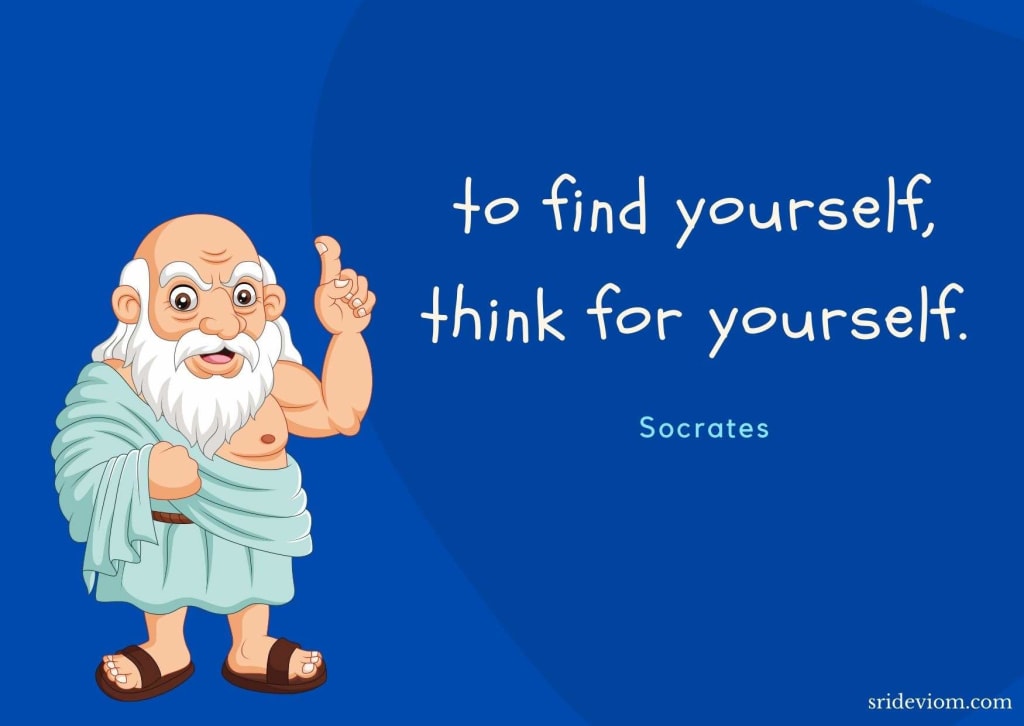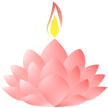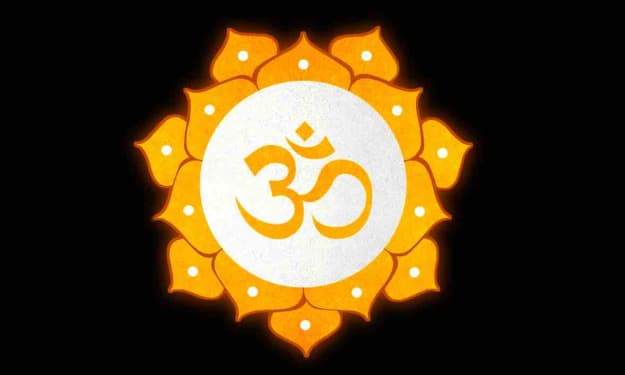My Truth: Think for Yourself
Individual-Centric View - It's all about your happiness!

History is not just the evolution of technology; it is the evolution of thought - James Redfield, The Celestine Prophecy.
Today, this evolution of thinking has created a Virtual Global Village, where we're beginning to view a centralized world. Or maybe we can say: development is returning to the source because it might all have started as one big village! Before I elucidate my point, let's go through a broader grouping of popular thought processes. As of now, we have four notable outlooks:
1. Legendary View: With a Revered Deity
The notion of Dvaita or duality is the theme here. That is, there's a God separate from us. We offer obeisance, narrate legends, and expound on the teachings of a specific Divine. The emphasis is on Bhakti or surrendering to that deity whole-heartedly. That's an ideal prescription for those deriving hope in the Lord's name. In this, we have a choice: we can use the legends to strengthen our faith or to reflect upon their esoteric significance.
The Legendary View is termed Puranic in Sanskrit. That constitutes modern-day Hinduism, the practice of ancient traditions as organized religion while advocating for a preferred deity - Vishnu, Shiva, Devi, Ganesha, Sun, etc. Amongst leading world religions, Mahayana Buddhism, which promotes worship of The Buddha and follows rituals, maybe categorized in this section.
Christianity goes here, as well. In his book The God Who Is There, D.A. Carson furnishes The Holy Bible's structure. The Bible, which means The Book, is a compilation of sixty-six works. It starts with Genesis or the story of creation. After that comes Abraham, Moses, David, and other kings' historical accounts and a few worship rituals. Then, the Wisdom Literature and Psalms (insight-filled songs). Revered as Yeshua or the savior Yahweh, Jesus Christ's brilliance unfolds in the final segment, known as the New Testament. Remarkably, The Bible's arrangement discussed above closely resembles that of the Maha-Puranas: Srimad Bhagavatam of Krishna and Sri Devi Bhagavatam!
2. Philosophical View: With a Formless Divine
There could be tenets offering guidance, and there may even be rituals, but there is no God in a form here. Islam, the second-largest religion, applies to this classification and celebrates the Formless Divine Allah. Some say that Allah has a form, but that seems to be a small percentage. In that case, Islam would become a Legendary View as well. Notably, just like Christianity, Islam is an Abrahamic faith. That is, these began with Abraham (Christianity) or Ibrahim (Islam).
Many Vedic philosophies, chiefly Advaita or non-dualism, come under this category. In Advaita, this creation is an illusion or play of the Formless Divine Brahman that pervades this universe, including ourselves. Interestingly, many thinkers who knew the Divine as Formless also prayed to a deity. Some for the sheer joy of reveling in a form, while others did it to keep their egos in check! At times, the wisdom portion of the Legendary View alludes to the Formless Divine.
3. Applicational View: With a Focus on Energy
Most Tantrik ideologies refer to Energy. Tantra, which means method or technique, has infinite personified deities. Yet, they're all representations of a singular Supreme Force. Tantra belongs to the Vedic culture but has become a category by itself. We can refer to an allegory for an explanation. In the Mahabharata, the Pandava brothers were descendants of the Kuru dynasty, in other words, Kauravas. Still, we separate them from the rest of their family and refer to them as Pandavas. That's precisely the story of Tantra and the Vedas.
Rooted in Tantrik traditions, Vajrayana or Tibetan Buddhism falls under this grouping. Even though Modern Science doesn't believe in Divinity, we can categorize it here as well! Science has validated energy and its applications. It focuses on tapping nature's power using sophisticated equipment. On the other hand, Tantra attempts to channelize internal and external energies through the mind apparatus.
4. Rational View: No Allusion of God or Energy
Thinkers who concentrate solely on self-improvement and personality-development relate to this view. That includes numerous modern psychologists, self-help writers, and life coaches. Theravada Buddhism, focusing on self-discipline, the concept of emptiness, and a life of moderation, fits in wonderfully over here. Zen Buddhism, with its meditative way of life, is the highlight of this section. Finally, we can add-in all other types of atheistic, agnostic, and even materialistic viewpoints in this grouping.
Individual-Centric View: A Customized Outlook
Now that we have a simplistic classification of popular thought processes, let me get to the crux. If we think deeply, all the four views listed above intend to achieve a common purpose - make our stay at this Earth resort happy and comfortable! For the longest, humans suffered helplessly in jungles. As a survival strategy, they lived together and worked collectively to move up the food chain. We've all evolved from that primal community. Many differences exist, but the thought processes' objective and overlaps substantiate that big-fat-family theory emphatically.
If you wish to travel to Antarctica, you make travel arrangements based on your current situation. Similarly, those views noted above are mere tour guides to our happiness. Once we've embarked on the journey, affiliation to any specific ideology is bondage as well. Sages have always strived to open us up; so that we can thrive peacefully. Self-discovery happens in a customized Individual-Centric View. Echoing the Greek philosopher, Socrates - To find yourself, think for yourself. Ultimately, it's all about your happiness. Here, every single life matters!
My View!
Personally, whenever I say Sanatana Dharma, I don't conform to any particular thought process. I'm alluding to my customized outlook towards life (which all my posts are about), that may or may not belong to any faith or tradition. It is My View! And it keeps me happy!
Freedom is living your life the way you want, but with the readiness to face your choices' consequences.
Inspired by those myriads of sages, who refrained from labeling their view and merely hash-tagged it as Sanatana Dharma, I do the same. If you aren't comfortable with that Sanskrit phrase, you can hash-tag or name your view to whatever works for you. After all, it's your baby, and you can call it whatever you want! How about the time-tested "My Truth" for starters?
About the Creator
Sri Devi Om
Sanatana Dharma based lifestyle articles. My purpose is to provide a holistic view of the scriptures of Sanatana Dharma (incorrectly known as Hinduism).






Comments
There are no comments for this story
Be the first to respond and start the conversation.